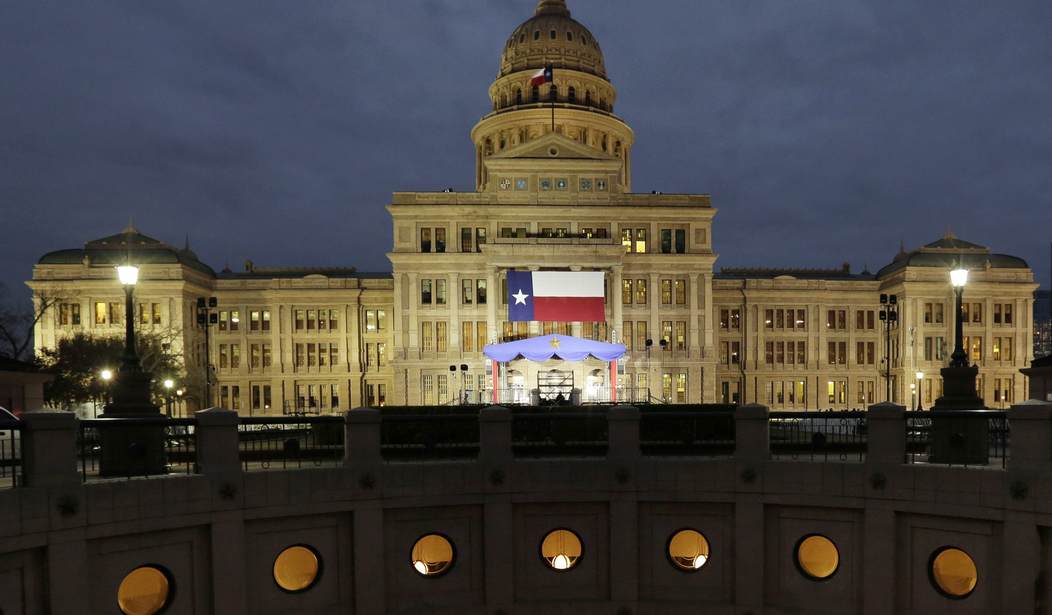The judgment in the Supreme Court case of Dobbs v Jackson Women’s Health Organization was released on Tuesday. The Court issued an opinion and order on the case on June 24 but the judgment takes thirty days to be released. With that action taken, Texas began its countdown for the trigger law on abortion to go into effect. It is a 30-day countdown.
Idaho and Tennessee are the only other states that have a 30-day delay in an abortion trigger law going into effect. A total of 13 states had a trigger law to ban abortion in place before the Supreme Court issued its opinion. The other ten states’ trigger laws went into effect immediately upon the overturning of Roe v Wade. In some states, abortion providers have blocked the bans from going into effect through legal action. Abortion restrictions and protections are moving through state legislatures.
That is how it should be – the right to an abortion should be a state issue, not a federal one. There is no constitutional right to abortion. So, in the near future, there will be lawsuits and court rulings in many states as the issue gets worked out.
Though the trigger law has not gone into effect yet, abortion is already banned in Texas. On July 1, the Texas Supreme Court ruled that a 1925 abortion ban can be enforced. It went into effect immediately upon the Texas Supreme Court’s ruling. That court decision overturned a ruling by a Harris County judge issued on June 28 that granted a temporary restraining order against the 1925 abortion ban.
The decision overturned a ruling by a Harris County judge that allowed abortions before six-weeks to temporarily resume. The law prohibits a person from administering or assisting in the administration of an abortion, with penalties of two to five years in prison and a fine between $100 and $1,000.
Originally, it was unclear if this law would go into effect because it was deemed unconstitutional by Roe in 1973. However, Texas lawmakers never repealed the law and Attorney General Ken Paxton and maintain it now will go into effect.
The implementation of the pre-Roe ban, alongside the Dobbs decision had a chilling effect on abortion clinics. Immediately after Roe was reversed Whole Woman’s Health and Planned Parenthood, two of the largest abortion providers, announced it had ceased services.
One abortion provider, Whole Woman’s Health, announced on July 6 it was shutting down four of its Texas clinics and is raising money to reopen them in New Mexico. New Mexico has greater access to abortion and has been used by Texans seeking out-of-state abortions in the past.
Senate Bill 8 already banned abortions after six weeks in Texas. It allowed everyday citizens to file lawsuits against abortion providers who violated the law and those who aided in an abortion. Texas Policy Evaluation Project found that 49.8% fewer abortions were performed in the state in September 2021, than in September 2020. September 2021 was the month that SB8 went into effect. A poll conducted the week before the Supreme Court’s decision found that most Texans don’t support the trigger ban. Only 15% of respondents supported a total ban on abortion. That would square with the majority of Americans. Polls consistently find that most Americans agree with abortion restrictions but support some exceptions for rape, incest, and the health of the mother.
The Texas trigger law is one of the most restrictive laws. The Legislature passed it in 2021. It increases penalties for performing an abortion up to life in prison. It also says “the attorney general “shall” bring a lawsuit to seek a civil penalty of no less than $100,000 per abortion performed.” Neither the pre-Roe statute currently in effect nor the trigger law have exceptions other than to save the live of the mother.
So far there have been no legal challenges filed to block the trigger law from going into effect. Since there is a 30-day timeframe in play, that may very well change.
The only way for abortion proponents to go back to a federal right to an abortion is for Congress to codify Roe v Wade. Abortion access, same-sex marriage, and contraception access are all subjects of legislation passed in the House. None of the bills have been brought up in the Senate.
The decision to reverse Roe, a nearly 50 year precedent, has also caused concern for contraception access and LGBT rights among activists. While Justice Samuel Alito explicitly wrote the Dobbs decision only applied to abortion, Justice Clarence Thomas in a concurring opinion wrote other due process precedents like Lawrence vs. Texas and Obergefell vs. Hodges should be reconsidered.
In response, Congressional Democrats have introduced several pieces of legislation in the U.S. House of Representatives to codify protections for same-sex and interracial marriage, contraception and abortion access.
The bills passed the House with varying levels of bipartisan support, however, it is still unclear how successful measures will be in the Senate.
I don’t expect the Senate to vote to codify Roe v Wade. Chuck Schumer lost the trust of Republicans on that subject when he went for trying to pass a far-left version of abortion rights. No Republican will vote for that, not even pro-choice Republicans like Susan Collins.








Join the conversation as a VIP Member